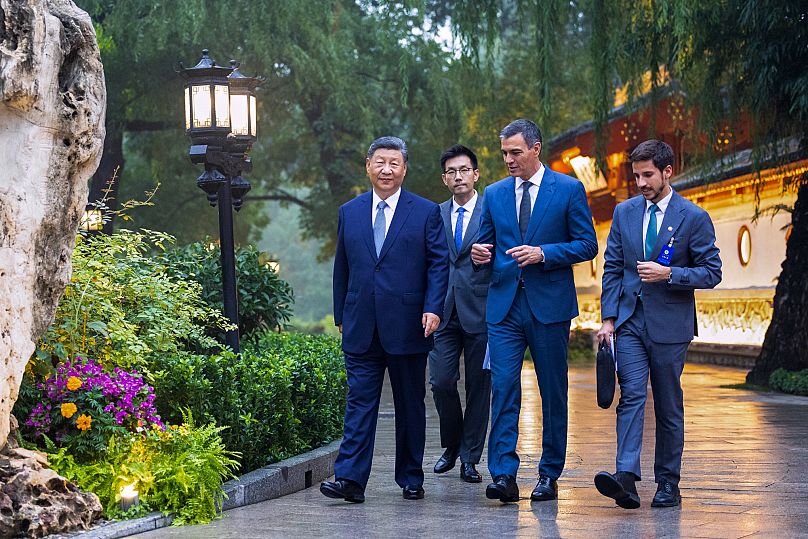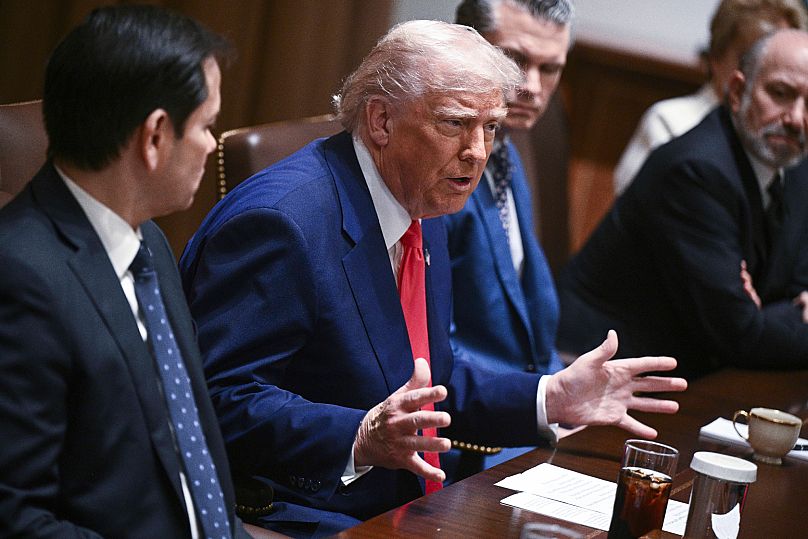Spanish Prime Minister Pedro Sánchez is in Beijing, his second stop on a two-country tour of Asia which comes against a backdrop of serious geopolitical tensions due to Donald Trump's tariff war.
During his visit to Ho Chi Minh City in Vietnam on Wednesday, Sánchez praised the tariff pause as "a gateway to negotiation and agreement between countries," after Trump suspended levies on most countries, with the exception of China, for 90 days.
Ahead of his visit, the White House warned the Spanish government against cosying up to Beijing.
In an interview with Fox News on Wednesday, Treasury Secretary Scott Bessent said that looking to China instead of the United States would be a "losing bet for the Europeans" and was akin to "cutting your own throat."
Sánchez is the first European leader to make an official visit to China since the escalation of tariff tensions between the US and the rest of the world.

Imbalance in favour of Beijing
Trade levels between Spain and China continue to increase, but with a marked imbalance in favour of the Asian giant.
In 2024, Spanish imports from China exceeded €45 billion, while exports barely reached €7.4 billion, according to data from the Ministry of Economy.
This places China as Spain's fourth-largest trading partner, its second-largest supplier of goods, but only the twelfth-largest destination for Spanish exports.
"Only multilateralism and solidarity between nations can address these types of global challenges. Spain defends a world with open doors. A world in which trade unites our people and makes them more prosperous," Sánchez said in Vietnam.

Among the products that Spain buys from China are machinery, textiles and consumer goods. In recent years, the import of automobiles and motorcycles has also gained importance.
Spanish companies primarily export chemicals, minerals and industrial components. China has established itself as the leading Asian market for Spanish sales and more than 14,500 Spanish companies maintain trade relations with the country.
But the bilateral investment figures are more balanced, albeit still modest.
In 2023, China allocated €131 million to projects in Spain, while Spanish investment in China reached €91 million.
Although the volumes are still small, both economies maintain a growing interest in strengthening ties in strategic sectors such as technology, energy, and logistics.
China comes to Sánchez's defence
When asked about the US Treasury Secretary's criticism of Sánchez's visit, Chinese Foreign Ministry spokesperson Lin Jian responded firmly: "If we talk about 'cutting each other's throats,' it is precisely the United States that, by abusing tariffs to threaten and blackmail the entire world, is trying to squeeze the necks of other countries, forcing them to yield to its policy of intimidation."
During a press conference on Thursday, Lin also said that trade between Spain and China is important for both sides, with bilateral trade between the two countries exceeding €44 billion in 2024, while Spanish exports to China increased by 4.3% last year, according to Beijing’s figures.
In the face of criticism from Washington, Spain’s socialist government has defended the overtures to China.
Agriculture Minister Luis Planas insisted that Spain has excellent trade relations with China, which "we clearly want not only to continue, but to expand."







